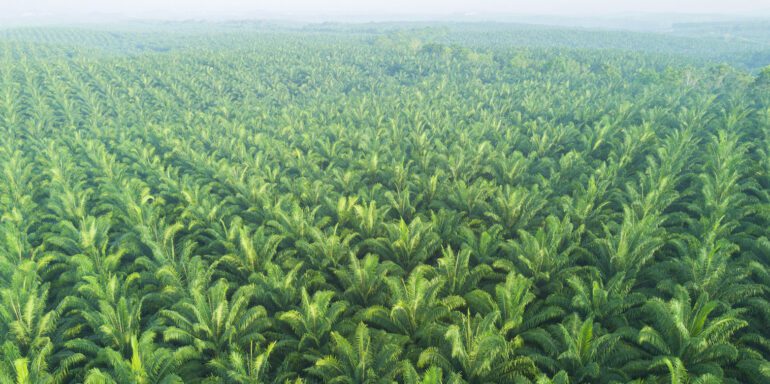TL;DR:
- Cargill partners with Satelligence, utilizing AI-driven satellite monitoring for deforestation-free supply chains.
- Satellite imagery aids in tracking crop distribution and deforestation, aiding sustainable sourcing.
- European regulations push for deforestation-free products, satellite solutions could assist compliance.
- Cargill restores 100,000 hectares of land in Brazil, sequesters 14 MM tCO2, and collaborates for sustainable finance.
- Company targets 10% GHG reduction by 2025 and 30% reduction in supply chain emissions by 2023.
- Land Innovation Fund supports projects for forest protection and farmer progress in South America.
- Collaboration with industry giants for sustainable fisheries financing.
- Strong financial growth alongside sustainability initiatives.
Main AI News:
The race for sustainability in the global food industry has taken a technological leap as Cargill, a dominant player in the field, ramps up its commitment to forest conservation. Through strategic integration of satellite-empowered risk monitoring, Cargill is amplifying its endeavors across soy, palm oil, and cocoa supply chains. This trailblazing initiative aligns with the corporation’s resolute ambition to establish deforestation-free supply chains by the milestone year 2030.
Cargill, an industry titan uniquely positioned to steer the transition towards sustainable food systems, recognizes the indispensable role of tech alliances, particularly with visionaries like geospatial sustainability frontrunner Satelligence. Their partnership marks a pivotal juncture in the battle against deforestation, harnessing cutting-edge AI-driven solutions to magnify the precision of input imagery. This transformative synergy swiftly converts imagery into invaluable insights regarding global crop distribution and deforestation incidents, thereby empowering F&B entities to navigate intricate global supply chains with renewed ease.
Niels Wielaard, the pioneering CEO and founder of Satelligence, elaborates, “The latest AI and machine learning techniques lie at the heart of our system, bolstering input imagery quality and enabling rapid, accurate processing. This, in turn, furnishes actionable information on crop distribution and deforestation incidents worldwide.” Such advancements relieve and embolden food enterprises, facilitating their pursuit of sustainable sourcing and climate goals. The pivotal proof of deforestation-free supply chains and the quantification of carbon sequestration across multifaceted global supply networks gain independent verification underpinnings through this revolutionary endeavor.
Notably, Cargill has achieved the comprehensive mapping of its direct soy suppliers in Brazil and the entirety of grains directly procured in South America. This monumental feat signals the corporation’s unwavering dedication to a panoramic understanding of its intricate supply chains, a practice it is extending to encompass other vital regions.
Navigating Regulatory Challenges
Within Europe, a surge of regulatory pressure to counter deforestation has surged to the forefront. The European Parliament’s endorsement of legislation mandating companies to substantiate their products’ deforestation-free origins since 2021 has catalyzed transformative shifts. While satellite-powered solutions emerge as lynchpins in meeting this regulatory due diligence, concerns arise among smallholder farmers. These apprehensions are rooted in the financial implications of integrating novel technologies, which could inadvertently exclude them from pivotal supply chains.
Critics further underscore that the legislation appears deficient in incentivizing forest rejuvenation, a critical facet considering the alarming depletion of global forests by a third. Addressing this concern, Cargill has assumed a transformative role in Brazil. Its commitment to restoring approximately 100,000 hectares of altered land within five years mirrors the expanse of New York City. This monumental endeavor not only fosters forest regeneration but also results in the sequestration of a staggering 14 million metric tons of CO2. A constellation of 34 ongoing projects underscores Cargill’s dedication to this endeavor, amplifying its impact on the ground.
Cargill’s Collaborative Eco-Initiatives
Cargill’s dedication to forest protection resonates not only through its restorative actions but also through strategic partnerships. Collaborating with Banco do Brasil, a heavyweight among financial institutions, Cargill has directed a substantial investment of US$240 million towards bolstering sustainability within Brazil’s energy, agricultural, and food products export supply chains.
The corporation’s profound commitment to climate mitigation is underscored by its ambitious targets – a 10% reduction in greenhouse gas emissions by 2025 within its operations and an impressive 30% reduction per ton of product sold by 2023 across its supply chain. For Matt Wood, the global impact data, analytics, and technology leader at Cargill, the imperative of combatting climate change resonates deeply with global food security and the preservation of crucial ecosystems. This profound understanding fuels the corporation’s resolute focus on deforestation-free pursuits.
Unveiling Transformative Initiatives
Cargill’s landscape of sustainability initiatives broadens to encompass the Land Innovation Fund for Sustainable Livelihoods. Anchored by an impressive commitment of US$30 million, this fund spearheads projects designed to safeguard forests and native vegetation across South America. In essence, this venture seeks to propel innovative, economically viable alternatives for South American farmers, curtailing the conversion of ecologically significant forests and native flora.
“We are dedicated to fostering accelerated development and implementation of innovative options that simultaneously protect landscapes and offer viable pathways for farmers’ progress,” avows a Cargill spokesperson, elaborating on the fund’s catalytic role.
Amidst these dynamic strides, Cargill’s collaborative endeavors shine brightly. Teaming up with eminent names such as Mars, Walmart, Costco, World Wildlife Fund, and Finance Earth, the corporation has unveiled a groundbreaking concept designed to finance the transition towards more sustainable fisheries.
Financial Triumph Amidst Transformation
Cargill’s unwavering commitment to sustainability finds a harmonious resonance in its fiscal triumphs. A recent financial update reveals an astounding fiscal revenue of US$177 billion, reflecting an impressive 7% increase from the preceding year. This meteoric growth underscores the confluence of principled sustainability initiatives with resounding financial success, establishing Cargill as a beacon of transformative change within the global food industry.
Conclusion:
Cargill’s strategic integration of AI-powered satellite monitoring to combat deforestation in its supply chains demonstrates a proactive commitment to sustainability. By aligning with regulatory demands, fostering forest regeneration, and collaborating for innovative financing, Cargill solidifies its role as a transformative force in the global food industry. This move indicates a shift towards sustainable practices becoming a market necessity, urging other players to adopt similar technology-driven approaches.

